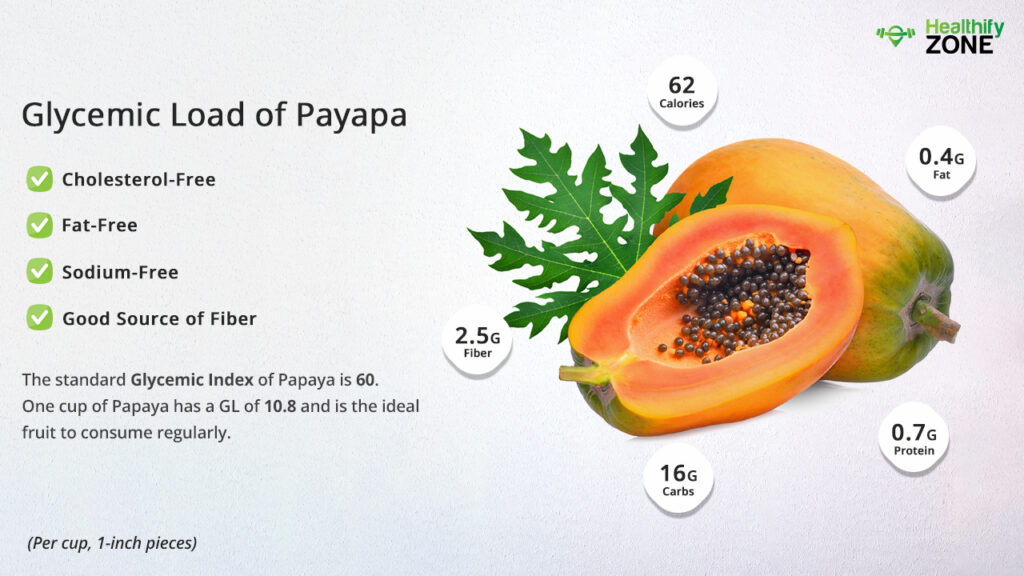Papaya has a glycemic index of 60. It might not significantly raise blood sugar levels. To determine how much your blood sugars are rising after eating papaya, it is always a good idea to monitor your blood sugar levels before and afterward. The benefits of papayas would greatly offset the increase in sugars. You may always take steps to ensure that your usage is moderate. Given that the fruit has a medium GI, it may be a viable option for those with type 2 diabetes. It also has a lot of fiber. This means that it can lower blood sugar levels in the body and make a person feel fuller for a longer period of time.
Is Papaya Safe for Diabetes?
Papaya can be safely consumed by diabetics in small amounts. A little portion of papaya is advised to help prevent unexpected rises in blood sugar. While papaya is low in calories, physicians and nutritionists recommend diabetic patients to limit their daily intake to one cup because the fruit naturally contains a reasonable quantity of organic sugars and should not be consumed in large amounts.

Is Papaya suitable for weight loss?
Papaya is packed with vitamins and nutrients that can aid with weight loss. To shed the extra weight, however, a balanced diet and a demanding workout program are required. Weight gain can occur for a variety of causes. Poor gut health is one of the factors that contribute to weight gain. The digestive system weakens and becomes dysfunctional as a result of eating unhealthful meals, consuming excessive alcohol, chain-smoking, not drinking enough water, and not eliminating toxins from the body. As a result, the metabolism slows down, and weight gain occurs. Papaya can assist with each of these issues.
What is the Best time to Consume Papaya?
Papaya can be consumed at night since it cleanses the intestines and acts as a laxative. Fruits should be avoided, nevertheless, for at least 4-5 hours following meals. Plan your dinner accordingly if you intend to eat papaya later in the evening.
The Bottom Line: The Glycemic Index of Papaya is 60
Papaya facilitates healthy bowel movements and enhances digestion. Austrian researchers studied individuals who suffered from digestive system disorders and dyspepsia. Papaya was provided to them. Bloating, constipation, and heartburn—common signs of digestive dysfunction—were shown to be greatly diminished.
Papain is a digestive enzyme found in papaya that aids in protein digestion and intestinal cleaning. The body’s metabolic rate rises and aids in fat burning as your digestive system begins to function better. The antioxidant beta-carotene, which aids in the body’s removal of pollutants, is abundant in papaya. It increases metabolism and protects against heart disease by getting rid of pollutants.